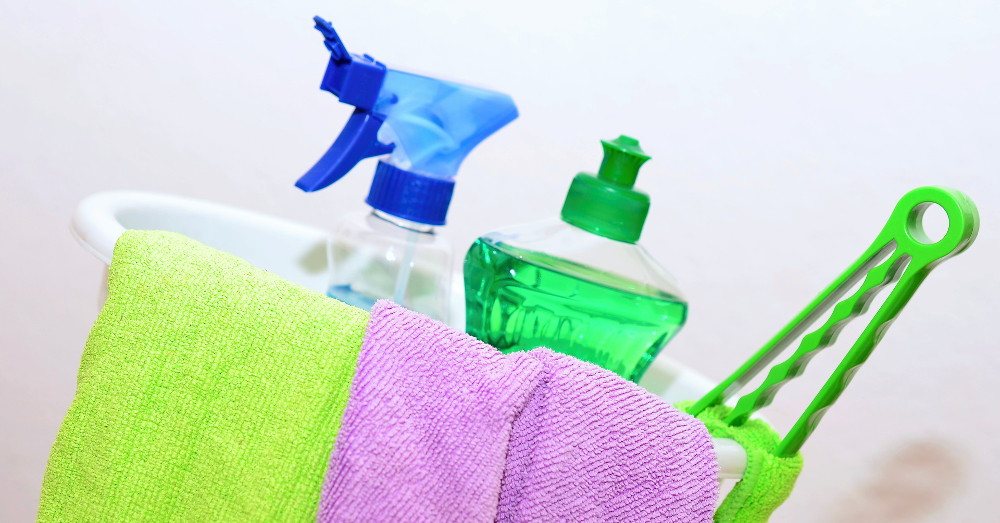
Exposure to Cleaning Products Are as Bad as Pack-a-Day Smoking
Although automobile emissions are declining, contributions to air pollution from household products is rising, now estimated to be 50 percent of volatile organic compound (VOC) air pollution. Once VOCs migrate outside your home they react with nitrogen oxides and heat, transforming into ozone, and when exposed to sunlight, the VOCs transform into fine particulate matter. Researchers find those who use cleaning sprays as seldom as once a week for 20 years suffer similar decline in lung function as those who smoke a pack a day for 10 to 20 years.
March 7, 2018 | Source: Mercola.com | by Dr. Joseph Mercola
With a growing understanding of the dangers of air pollution, the automobile industry has significantly reduced emissions and Americans are producing less obvious pollution than ever before. However, as air pollution does not recognize borders and can travel thousands of miles, much of the smog on the West Coast of the U.S. originates in Asia.1
A collaborative effort of more than 40 researchers looking at data from 130 countries has called air pollution the “largest environmental cause of disease and premature death in the world today.”2 Fine particulate matter is the most studied type of air pollution and refers to particles smaller than 2.5 micrometers in diameter, which is about 30 times smaller than the width of a strand of hair. This is small enough to pass through lung tissue and enter your bloodstream, triggering chronic inflammation and chronic diseases.
According to the World Health Organization (WHO), 92 percent of the global population is breathing polluted air.3 This measurement is based on outdoor sources from transportation vehicles, industrial activity, burning of household fuel and coal powered plants. Although these numbers are considerable, they are likely conservative. According to a recent study published in the American Journal of Respiratory and Critical Care Medicine, you may also expose yourself to fine particulate air pollution while cleaning your home.4
Weekly Use of Chemical Cleaning Solutions Is Comparable to Pack-a-Day Smoking
Before modern soap products were sold in the mid-1900s, most people used water and white vinegar for their household cleaning needs. Over the past 50 years, the number of soaps, detergents and cleaning solutions have grown at an amazing rate as manufacturers try to meet the demands of consumers looking for a quick, fragrant solution to a dirty problem.5
However, recent research6 from the University of Bergen in Norway demonstrates those who use chemical household cleaners as seldom as once a week experience an accelerated decline in lung function. Once-weekly use of cleaning products for 20 years may be equivalent to smoking 20 cigarettes a day for 10 to 20 years.7,8
Data from over 6,000 participants, whose average age was 34 when they enrolled in the European Community Respiratory Health Survey, were analyzed. Using 20 years of data, researchers found women who used commercial cleaning solutions experienced a reduction in lung function, as measured by forced expiratory volume and forced vital capacity, much faster than those who used them more seldom or not at all.
Cleaning Products Take Heavy Toll on Lung Function
Initially, the authors were surprised by the results. Senior author Cecile Svanes, Ph.D., professor at the University of Bergen Center for International Health said:9
“However, when you think of inhaling small particles from cleaning agents that are meant for cleaning the floor and not your lungs, maybe it is not so surprising after all. While the short-term effects of cleaning chemicals on asthma are becoming increasingly well documented, we lack knowledge of the long-term impact.
We feared that such chemicals, by steadily causing a little damage to the airways day after day, year after year, might accelerate the rate of lung function decline that occurs with age. The take-home message of this study is that in the long run cleaning chemicals very likely cause rather substantial damage to your lungs. These chemicals are usually unnecessary; microfiber cloths and water are more than enough for most purposes.”
The authors postulate the decline in lung function could be attributed to the irritation most chemicals cause on the mucous membranes lining your lungs. Over time, this can result in persistent changes and airway remodeling. The data was adjusted for variables known to potentially bias the results, including body mass index, education and smoking history,10 The researchers acknowledged the study included very few people who did not clean, but they believe the results of the data analysis is strong.
